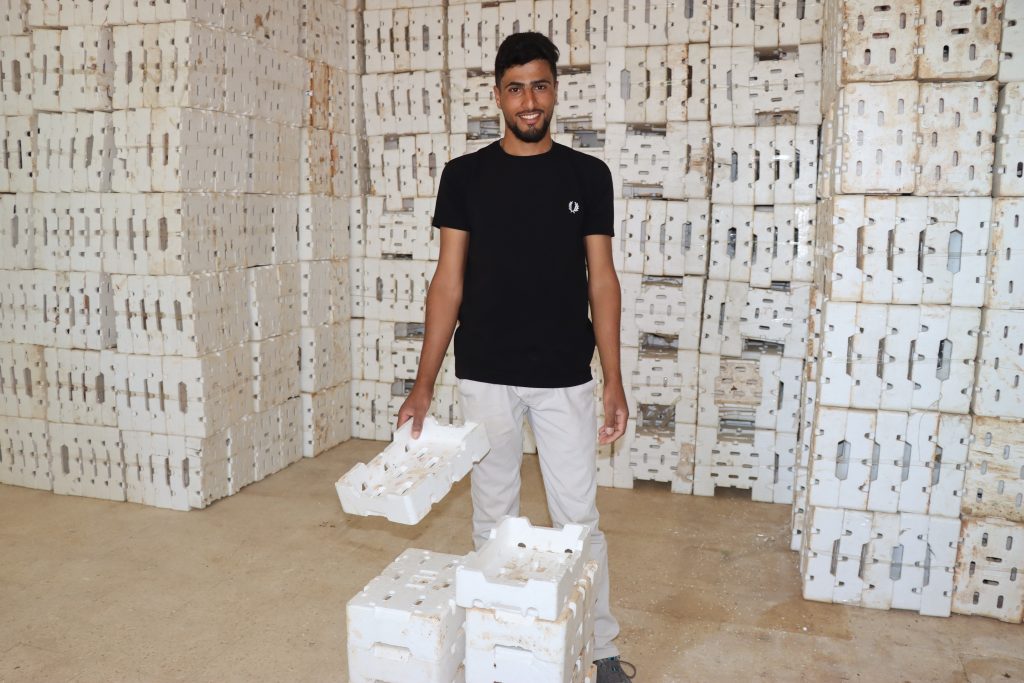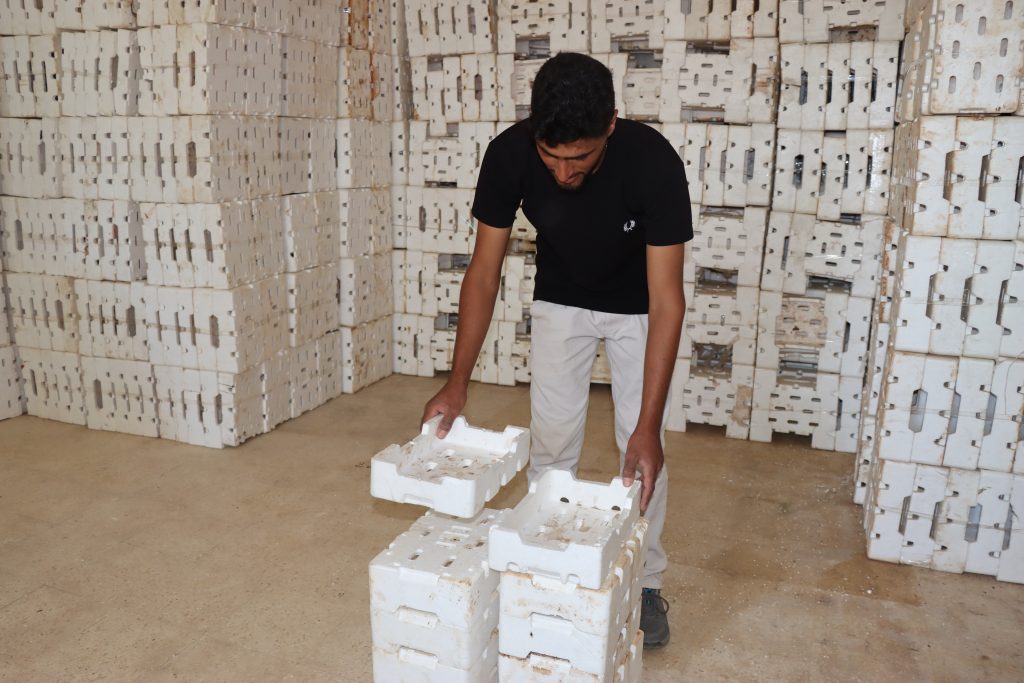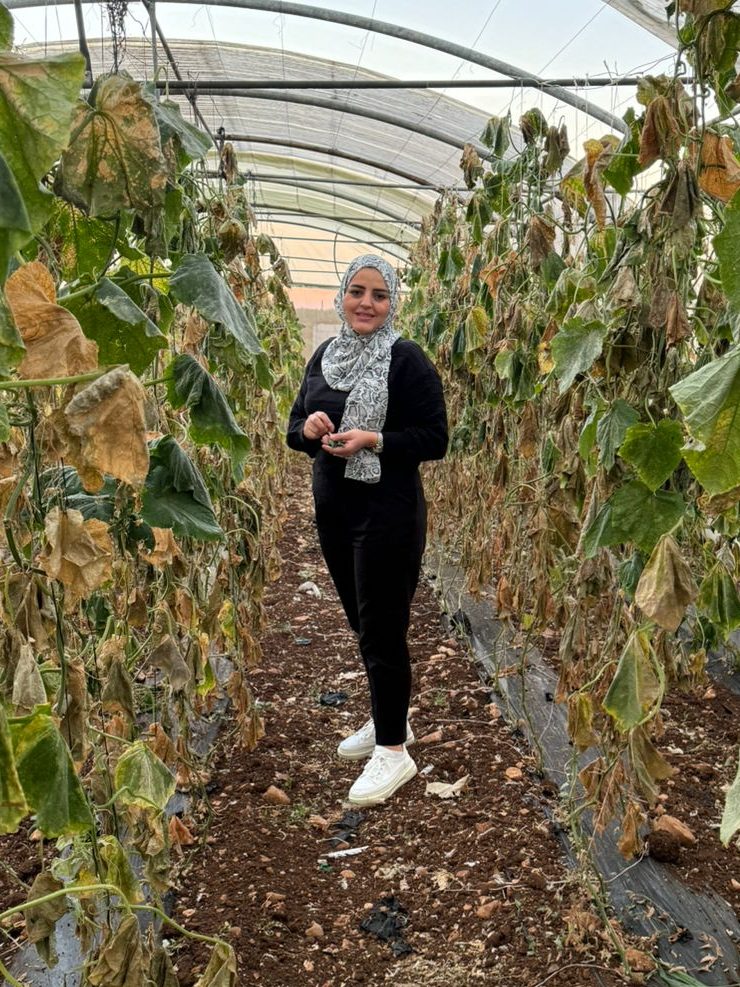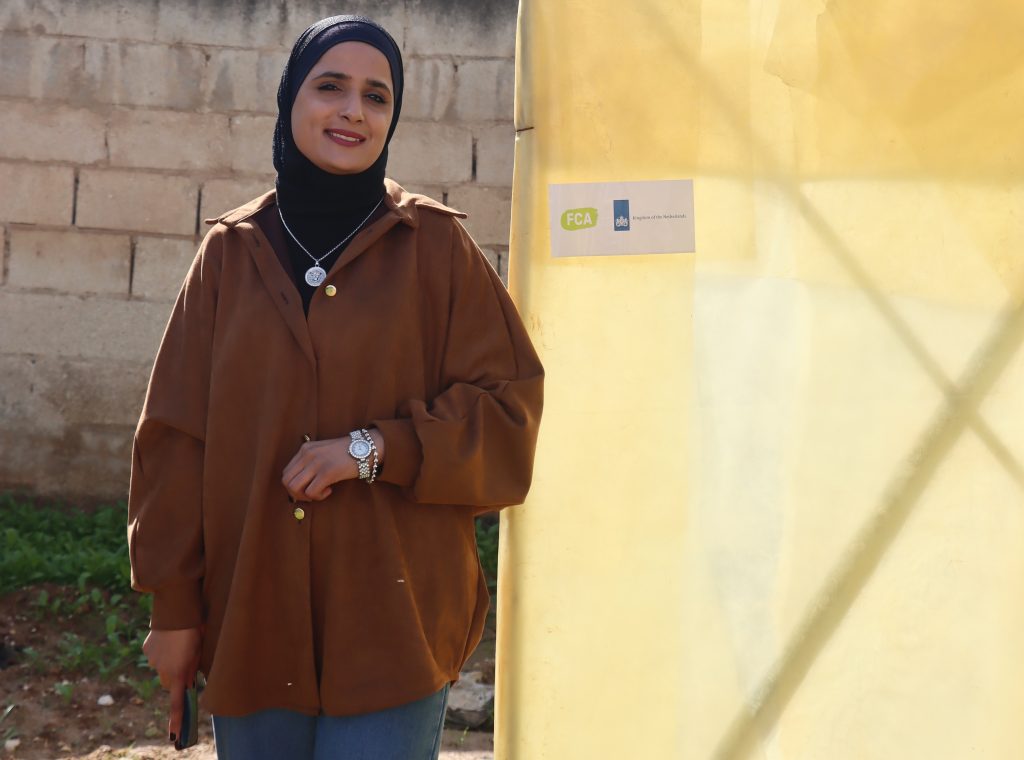
‘COOL-YA’ project supports financial and personal growth of youth in Jordan
The “Creating Attractive Livelihood Opportunities for Youth in the Agricultural Sector” project is helping talented young people in Jordan train to be entrepreneurs and make their ideas into lucrative businesses, which support their families.
JORDAN IS CLASSIFIED by the World Bank as a lower-middle-income country with a population of over 11 million. Its relative political and socio-economic stability makes it a valued asset in the region. As a result of its stability, Jordan has been a main destination for over 1.3 million displaced Syrians since the outbreak of conflict in 2011.
Over 60 per cent of Jordan’s population are under 30. Of youth aged 15-30, a third are unemployed, according to UNICEF. The country, which has endured economic challenges, lacks sufficient job opportunities, leaving even educated young people with limited opportunities.
Employment is essential for a good life, benefiting more than just the individual employee. One employed person can support multiple family members, and earning a livelihood greatly enhances people’s future prospects, which is why FCA is focusing on supporting young people in Jordan who want to secure a their right to a livelihood.
Having a regular income also improves the position of women and people with disabilities, giving them better opportunities to plan their lives. However, aspiring entrepreneurs often lack the necessary funds and skills to start a business. FCA bridges this gap by offering free training and start-up grants, as described by three young participants in the COOL-YA project.
Ammar Al-Khatlan : young refugee entrepreneur

“I see myself as an ambitious young Syrian guy who refuses to give up even in difficult situations. I strive to be optimistic and bring positive energy to my family, friends, and everyone around me.”
Ammar Al-Khatlan, is a 23-year-old Syrian refugee living in Ramtha city in Jordan’s Irbid Governorate. In Syria, where Ammar and his family are from, they were considered wealthy. However, the conflict forced them to leave everything behind in 2013 and live in informal settlements in different governorates in Jordan before settling in the camps of Ramtha.
During this period of uncertainty, Ammar discovered one of FCA’s social media platforms where he found a call for registration to an entrepreneurship programme, with the potential to receive a financial grant. Seizing the opportunity, he thought of a plan to apply for the grant and developed his business idea.
Ammar began with a simple observation: farmers in his area frequently made frequent trips to Irbid Governorate (approximately 20 kilometers away) and Amman (86 kilometers away) to purchase agricultural boxes for packing their crops. Realising that no one in the Ramtha District was selling these essential items, Ammar identified a business opportunity.
With the support of FCA, he received his first ever financial grant of 2,250 Jordanian Dinar (approximately 2,933 EUR) to launch his business.
“The project provides farmers with a variety of packages that meet their demands while saving them money, time, and effort,” Ammar explains.
Stable and sustainable livelihood
This project not only addresses the needs of local farmers but also supports Ammar’s personal goal of securing permanent income and improving the living situation. As a young Syrian man, obtaining a work permit is challenging. Ammar had previously worked as a day laborer on farms. His entrepreneurial venture offers a more stable and sustainable livelihood.
Through this journey, Ammar learned more about studying the market, customers, and competitive landscapes, and how to analyse them, which he describes as the best part of the training. The project became the primary income for Ammar and his entire family, especially after he started getting to know the farmers. Sales increased because of higher demand. Meanwhile, the rest of his family no longer had to work as day workers because they became partners in his project.
One of the most significant financial decisions Ammar made was to relocate his family from the tented settlements, where they were living in poor conditions. After receiving the grant, launching his own business, and making profits, he rented an apartment for his family in Ramtha, which he regards as his greatest life achievement.
Ammar highlights the significance of the agricultural sector, saying:
“The agricultural industry is the lifeblood of any country, particularly one as developed as Jordan. By providing support, we help young people become self-sufficient, keep them from feeling empty, and focus on building their future.”
After successfully finishing his project with FCA, Ammar has worked to assure its long-term success and sustainability. He also expanded his business, reaching another Jordanian governate called Madaba.
Samah Obaidat turned challenges into opportunities

“I consider myself to be ambitious, a leader, and a persistent lady that wants to accomplish a lot in life,” says Samah
Samah Obaidat, a 32-year-old mother of two resides in Habras village in the Bani Kenana District of Irbid Governorate, Jordan.
She has been a youth and social activist since her university days, enjoying volunteering, serving the community, and leaving a positive impact. Her love for children inspired her to pursue a diploma in measuring and diagnosing autism to help the people in her village.
Samah’s journey began when she found herself unemployed despite holding a Bachelor of Science degree in Special Education.
She joined FCA’s entrepreneurship programme, enabling her to establish a microbusiness focused on growing baby cucumbers. The business intentionally incorporates people with disabilities and autism within the local community. It also provided an opportunity for her to promote herself as a pioneer and project owner known for social entrepreneurship, which was the first of its kind in her community.
Family and community support
The psychological and moral support she received from her family, and community, as well as the families of disabled children with whom she collaborated, was a source of fulfillment for her. They believed in her idea and her capacity to carry it out, which helped her to overcome the challenges she faced, like volatile weather conditions and the need for more water tanks.
Samah also faced the problem of pests, which damaged her crops. She sought help from FCA and their partners, who advised her on how to deal with them. This prompted her to enlist the help of an agricultural specialist to spray the crops and protect them.
“Before the project, I was just a volunteer participating with civil society organisations and local initiatives. After the support that I received, I began to think of myself as an entrepreneur who generates her own financial income while also assisting young people with disabilities in obtaining financial independence,” Samah explains.
The initiative helped her become financially independent, and the profits covered the costs of hiring labour and added to her family’s income.
Samah believes that since the agricultural industry is crucial in Jordan, young people must be involved from the first step. When we address food security, we recognise that we are all participants in the progress of our country and its land. That leads to creating new work possibilities and marketplaces, which are crucial in reducing high unemployment rates.
“You should work hard to achieve your dreams and goals, despite all the obstacles, and with God willing, you will succeed and be innovative,” Samah advises.
Lilian: entrepreneur farmer

“I describe myself as a positive, ambitious, and optimistic person,” says Lilian
Lilian, 26, studies business administration in university and lives in Al-Mafraq city in the northern part of Jordan.
She’s also passionate about planting and interested in agriculture, which is how she became involved with FCA.
Following the Covid-19 pandemic, Lilian observed a critical need to boost agricultural productivity. She proposed a project to utilise an unused piece of land behind her family’s home. With FCA’s support, she started to grow cucumbers, aromatic and flowering ornamental plants – all in a greenhouse. The diversity ensured that if one failed to provide results, another would grow.
According to Lilian, the key to her project’s success is hope. Despite initial skepticism from neighbours, who argued that a residential area could never provide the space needed for an agricultural project, Lilian proved them wrong. As as the production levels increased, they started to call it ‘Lilian’s farm’ rather than ‘Lilian’s project’. It’s just one indicator for Lilian of the high level of her success.
“Being selected for FCA’s project gave me a lot of strength. I see myself as a person that achieved her goal, and I want to do more and more in the future.”
Personal growth
Her project brought significant personal growth for Lilian. She developed a stronger personality, expanded her network, and gained the skills necessary to manage her own business and engage with merchants. FCA’s training sessions enabled her to craft proposals, build confidence, and connect with her community. She also acquired valuable insights into product marketing.
“Having your own business and earning your own money, no matter how small, and seeing your dreams coming true are, in my opinion, more fulfilling than working for a company or organisation where your income is set,” she says.
Through the training sessions provided by FCA, Lilian learned to write proposals, gain confidence, and develop her personality. These skills allowed her to connect with the community and create networks with other beneficiaries. She also gained knowledge about product marketing.
Lilian’s project not only supports her family financially but also provides them with fresh vegetables, helping them save money on grocery expenses. This success reinforces her belief in the importance of supporting young people in agriculture. She is convinced that they are willing to work harder, put in more effort, and bring innovative ideas to the field.
—
Text: Christine Shimbilian
Photos: FCA Jordan
The “Creating Attractive Livelihood Opportunities for Youth in the Agricultural Sector” “Cool-Ya” project is funded by the Kingdom of the Netherlands in Jordan. The project is seeking to attract more youth to the agriculture sector by making it more appealing and interesting for young people.